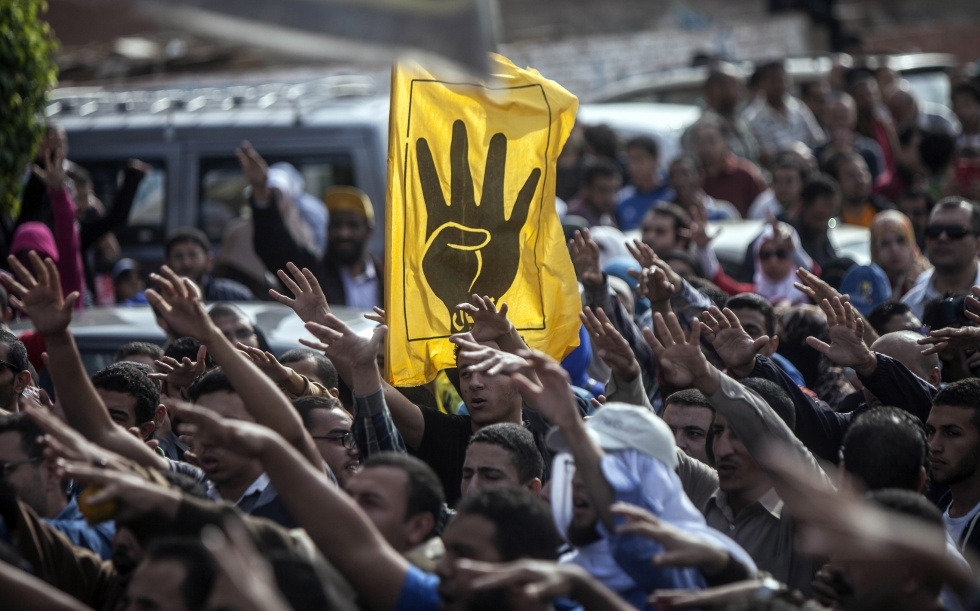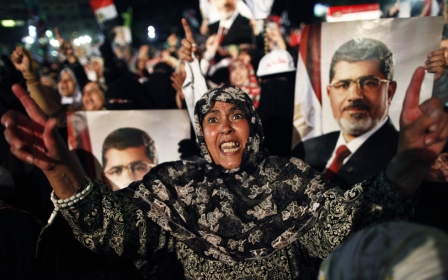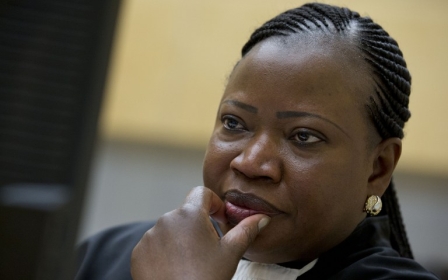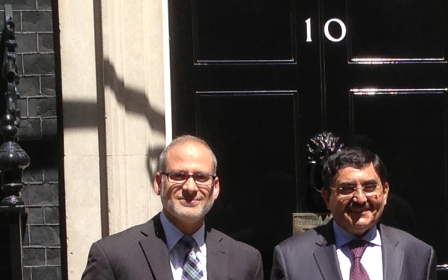African court to investigate alleged Egyptian crimes against humanity

"We submitted our case documentation to the court, which accepted it and set a session for mid-September," Walid Sharabi, a judge opposed to Morsi's ouster last year at the hands of the army, told Anadolu Agency.
Sharabi's statements came despite the fact that AfCHPR Registrar Robert Eno had told Anadolu Agency earlier that the court was unable to process complaints of human rights violations lodged against the Egyptian regime because Cairo had not ratified the protocol establishing the court.
Sharabi, however, said Eno had been referring to other complaints that had been rejected by the court.
"Our lawsuit was accepted by the court because it met all legal and formal requirements, unlike other ones filed by other Egyptians," he explained.
According to Sharabi, the case filed by the pro-Morsi Legal Committee in Defense of the Egyptian Revolution bore the number 57 of 2014.
It calls for acknowledging Morsi's ouster by the army last summer as an unconstitutional "military coup" and for the prosecution of coup leaders on charges of crimes against humanity.
"We have papers that prove that the AfCHPR has accepted our case against the coup," Sharabi said.
Gamal Heshmat, a leading member of Morsi's Muslim Brotherhood group, confirmed that the case rejected earlier by the AfCHPR had been filed by individuals – mostly relatives of the victims of a deadly crackdown on Morsi supporters that followed Morsi's July 3 ouster.
"Cases rejected by the African court were filed by individuals close to the families of victims," he told AA.
"They were rejected because they were submitted by individuals and because Egypt has not ratified the court protocol," Heshmat said.
Yet, he said, this was different from the case submitted by the pro-Morsi committee, which, he said, had been endorsed by a civil society group accredited with the African court and backed up by "thousands of documents proving the crimes of the coup makers."
He declined, however, to provide the name of the civil society organization in question.
In a statement, the committee reaffirmed that its lawsuit had been accepted by the court after meeting all prerequisites and receiving the endorsement of an African legal group affiliated with the African Union.
"There has been no official statement from the court or from judges regarding the case," it added. "The statements, attributed to a court employee, are not based on any legal aspect of the case."
Earlier, Eno had said that the court had received three applications from Egyptians regarding Egypt's human rights situation, but had been unable to process them because Egypt had never ratified a protocol allowing its citizens and NGOs to file applications with the court.
He said the court could only accept applications from NGOs and citizens from countries that had signed and ratified the protocol.
"After signing and ratifying [the protocol], countries must sign a declaration allowing their citizens and NGOs to file applications with the court," Eno explained.
To date, only 27 out of Africa's 54 countries have ratified the protocol.
"Of these 27 African countries," said Eno, "only seven – Tanzania, Burkina Faso, Ghana, Ivory Coast, Mali, Malawi and Rwanda – have made the declaration to allow their citizens and NGOs to file their application to the court."
The AfCHPR, jointly established by African countries in 2006, is mandated with guaranteeing human rights on the continent.
Each of the court's judges, who hail from 11 different African countries, serves a six-year term and can only be re-elected once.
The court's president and vice-president, meanwhile, are each elected to two-year terms. They, too, can only stand for reelection one time.
New MEE newsletter: Jerusalem Dispatch
Sign up to get the latest insights and analysis on Israel-Palestine, alongside Turkey Unpacked and other MEE newsletters
Middle East Eye delivers independent and unrivalled coverage and analysis of the Middle East, North Africa and beyond. To learn more about republishing this content and the associated fees, please fill out this form. More about MEE can be found here.




